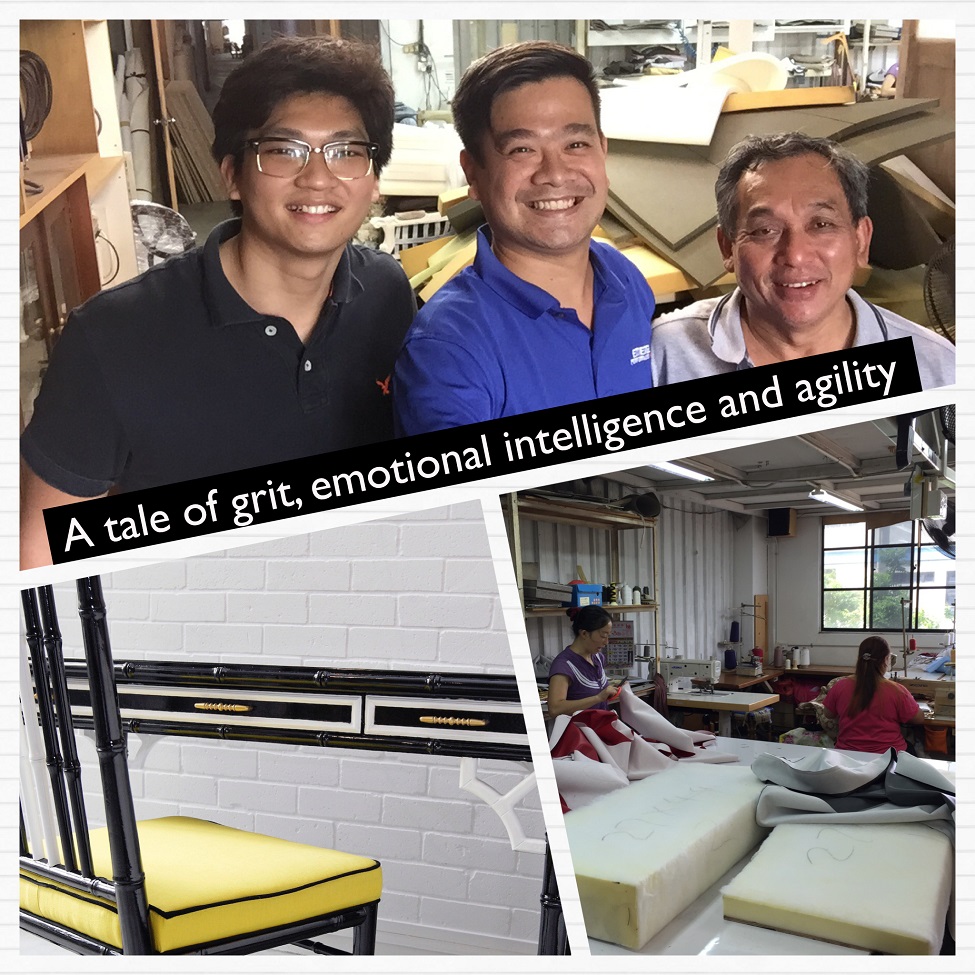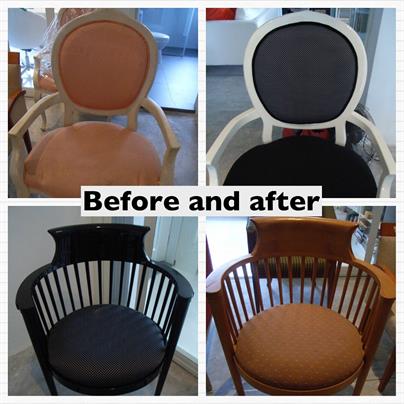
Amid the current economic slowdown, many are tightening their belts and approaching the rest of 2016 on a cautious note. In June I sat down with Mega Marketing’s Kenneth Lim, a furniture-making master, for my “In The Flow” interview series to uncover his take on navigating this challenging period.
There are not many who can lay claim to being in the same job for over four decades. With 42 years under his belt, Kenneth has fully experienced the highs
and lows of various economic cycles. As some of you may know, the furniture industry in Singapore has seen better days, so it is quite remarkable that
Kenneth is still doing what he is doing, i.e. making furniture.
Here are three mindful lessons from his experience:

First Things First
Kenneth does a lot of furniture restoration. During the interview, he shared that while the financial rewards for such work may at times not be commensurate
with the effort and time he puts in, it is still imperative that he puts his best foot forward.
“Each work assignment or project we deliver bears our signature, our brand,” says Kenneth. “Do we consistently deliver quality work no matter what, or
do we cut corners when the going gets tough?”
Such a mindset brings up the importance of maintaining a presence or clarity of mind when one encounters an obstacle. Doing so allows one to avoid getting
side-tracked by financial over-analysis, fears of competition catching on or pursuing Plan B prematurely. This is the discipline of mindfulness, which
enables one to focus on the right things at the right time.
What you can do: At the start of each day, as part of your routine, ask yourself what your true priorities are and then align your time and effort to them.
As Stephen Covey said, “First things first.” Mindfulness gives you the muscle to execute this.
To Adapt is to Exercise Non-attachment
Kenneth has survived the highs and lows of his business because he has adapted to the changing industry terrains. From the 70s to the mid-80s, manufacturing
cane furniture was a hot trend, which he capitalized on. Then came competition from neighbouring countries, which offered cheaper options. Hence, business
slowed. To survive, Kenneth moved fast and adapted. He began to import from these neighbouring countries.
From the 80s to the 90s, the demand for cane furniture waned, so he turned to contract furniture manufacturing while sticking to his ethos of delivering
quality work and great customer service. This approach allowed him to survive the currency crisis in 1997 and the SARS crisis in 2003. It is now 2016
and his business is still alive and well.
One of the challenges to staying nimble and adaptable is the bad habit of clinging to our comfort zone or old success recipes. In short, this is the refusal
to let go of the past. To adapt is to exercise the discipline of non-attachment – a key attitudinal foundation of mindfulness. In other words, this
is cultivating the discipline of allowing each moment to unfold in its own time, discerning what is truly relevant and having the courage to let go
of the obsolete without becoming ensnared by it.
What you can do: Staying in touch with your breath is a simple mindful reminder to let go and enjoy the freedom of not having to control everything. It
only takes a breath.
Non-judgement: Perspective Agility
“We are all in the customer service industry,” says Kenneth, “and our job is to address their (customers’) requirements.”
Kenneth has a talent for drawing. He uses it to not only capture what the customer requires, turning words into visuals, but also to align expectations
through an open and interactive discussion. This exercise allows for a graphic exploration of different points of view between Kenneth and his client.
This helps him to remain open to discussion.
Everyone has his or her own perspective. At the end of the day, exercising perspective agility to see and accept things from various viewpoints is key
to nurturing constructive dialogue and meeting customers’ needs.
Such an approach reflects another key attitudinal foundation of mindfulness: non-judgment. This requires taking the stance of an impartial witness to the
experience, including our stream of judging thoughts.
What you can do: In discussions, it is common for egos overtake good intentions. The beauty of mindfulness is that when you become conscious of your own
judgmental thoughts, you can choose to heed those judgments or explore other decision alternatives. As Viktor Frankl put it beautifully, “Between stimulus
and response there is space. In that space is your power to choose your response. In your response lies your growth and freedom.” Mindfulness is that
space.
Economic rain or shine, instead of tightening our belts, let’s be sure to open our mindful hearts to fully engage in what’s called for in the present,
respect different perspectives, and not lose ourselves in the past or future. Perhaps we can then start producing masterpieces just like Kenneth Lim.